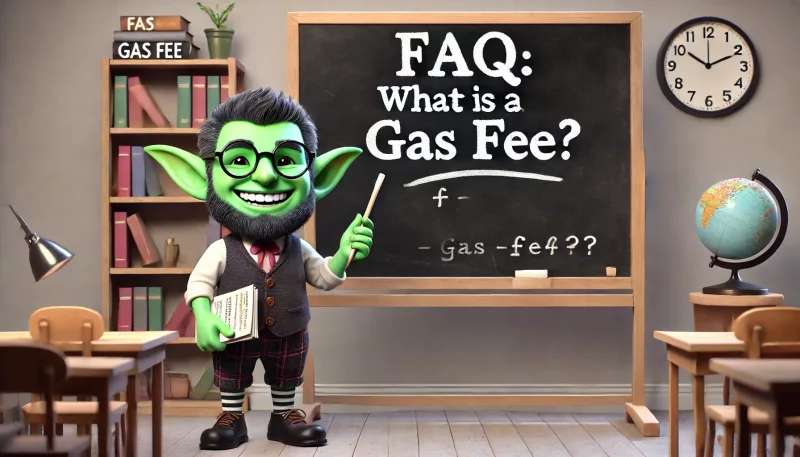What is a Gas Fee Podcast
Understanding a Gas Fee on Goblins
A gas fee is a fee paid to the validators of the blockchain network you are using for your cryptocurrency transaction. The required coin for paying these fees depends on the specific network.
Supported Networks and Their Native Coins
Below are the networks supported by Goblins and the respective coins used for these fees:
- smartBCH: BCH
Acquiring Coins for Gas Fees
If you need coins for these fees, you can obtain them through the following methods:
- Transfer from Another Source:
- Exchanges and Wallets: Transfer the native coin from another exchange or wallet into your Goblins-compatible wallet.
- Bridge Tokens:
- Token Bridges: Use a bridge to transfer tokens to the network you are swapping on to cover the fees.
Important Points to Consider
- Non-Refundable Fees:
- Transaction Costs: Every transaction on the blockchain incurs a fee, which is non-refundable, even if the transaction fails. Validators must still use their resources to process and verify the transaction.
- Decentralized Validation:
- Resource Utilization: Validators use their own computers to verify and process transactions, rather than relying on a central authority. This ensures the decentralized nature of the blockchain network.
- Goblins’ Role:
- No Control Over Fees: Goblins does not control or receive any portion of the gas fees. These fees are entirely managed by the blockchain network’s validators.
Additional Tips and Considerations
- Estimating a Fee:
- Fee Calculators: Use gas fee calculators and estimators to predict the costs of your transactions on the network. This can help you budget for your transactions more effectively.
- Network Conditions: Gas fees can fluctuate based on network congestion and transaction volume. Monitor these conditions to choose optimal times for transactions.
- Managing a Fee:
- Adjustable Gas Prices: Some wallets allow you to adjust the gas price to prioritize transaction speed or cost. A higher gas price can speed up transaction processing, while a lower gas price can save on fees but may take longer.
- Batch Transactions: If possible, batch multiple transactions into one to save on overall gas costs.
- Security and Efficiency:
- Secure Wallets: Ensure that your wallet is secure and properly configured to handle these fees and transactions efficiently.
- Stay Updated: Keep up-to-date with network upgrades or changes in gas fee structures that could affect your transactions.
- Gas Fee Alerts:
- Notification Services: Some platforms offer alert services that notify you when gas prices drop to a certain level, allowing you to execute transactions at a lower cost.
By understanding and managing gas fees, you can optimize your transactions on the Goblins Protocol, ensuring efficient and cost-effective participation in the decentralized finance ecosystem.

